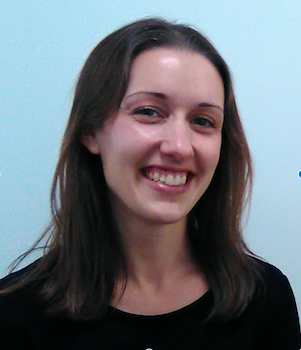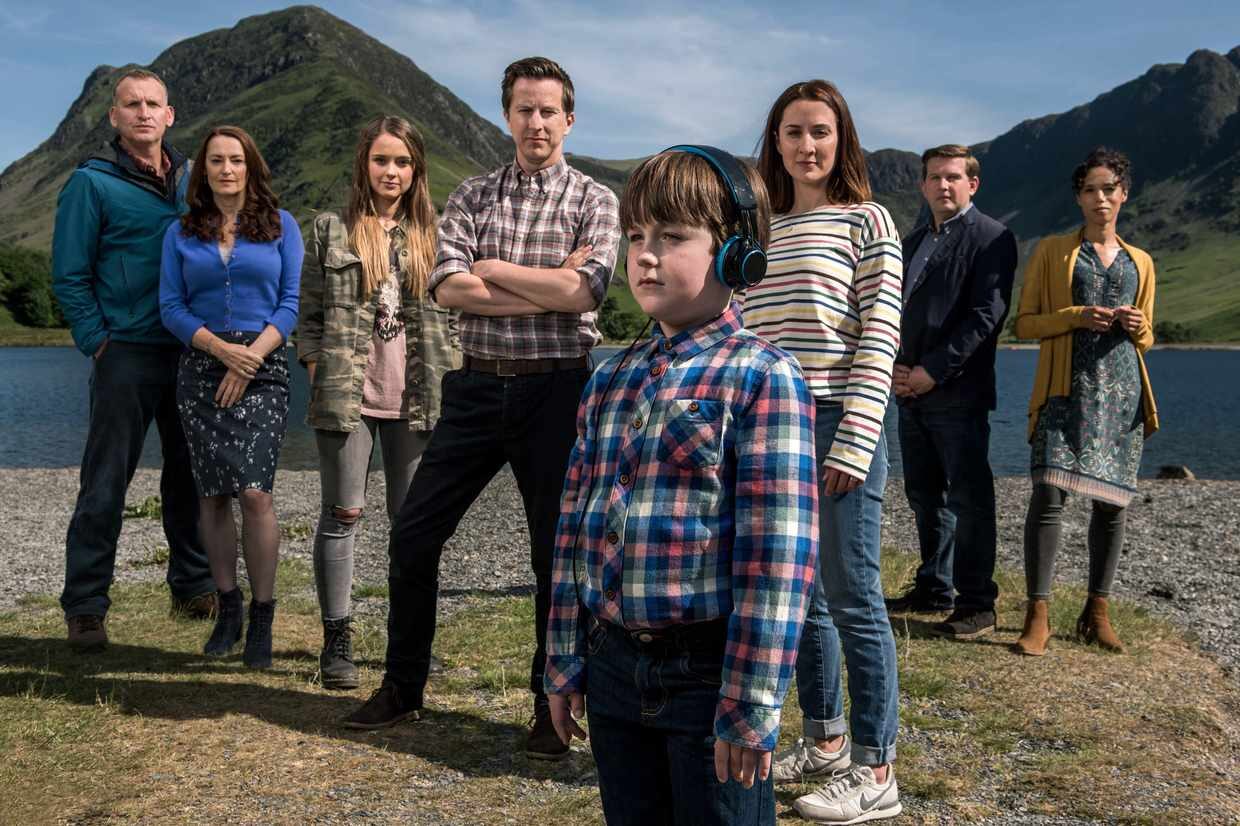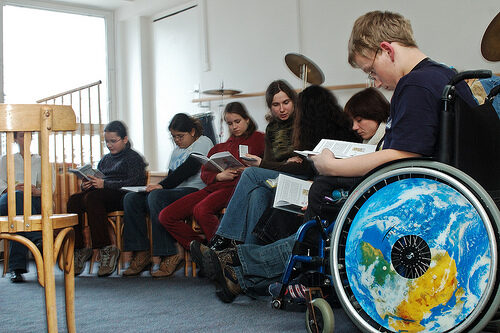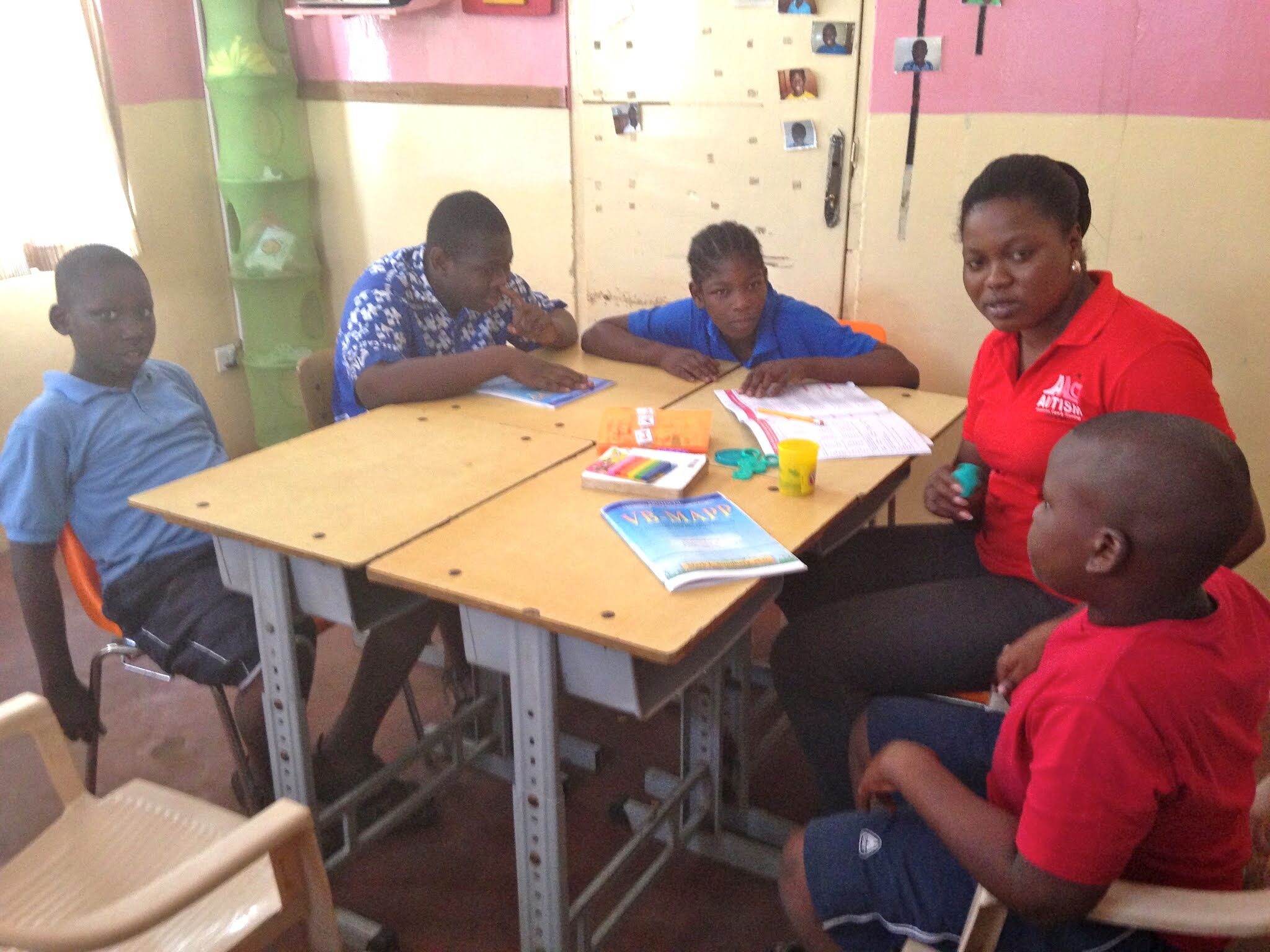Shannon Rosa from Thinking Person’s Guide to Autism and Corina Becker from Autism Women’s Network interviewed Laura Crane from CRAE, the UK-based Centre for Research in Autism and Education about her work in supporting best practices in health care and education for autistic people, and also demonstrating that Autistics, children specifically, can be reliable witnesses during criminal investigations. Laura Crane | Photo: CRAE [image: Smiling white woman with long brown hair.] Shannon Rosa: Why don’t you start by telling us a little bit about the work that you’re doing for CRAE, because it seems like you’re involved in so many things. Laura Crane: My research focuses on two main areas. The first is looking at how we can support autistic children and adults within the criminal and family justice systems. A lot of that work has come from police officers and barristers and other legal professionals assuming that autistic children and…
Tag: education
The Main Cast of The A Word [image: A white British boy wearing headphones and looking to the side. Behind him are grouped five white adults, one white teen girl, & a black woman] Sarah Pripas Kapit @SarahKapit The most important thing to know about BBC’s drama The A Word is that it both is and is not a story about autism. On a basic level, The A Word is very much an autism story. The show’s first season told the story of the Hughes family as their young son Joe (Max Vento) was diagnosed with autism. In the second season—the focus of my review—the family continues to navigate life. Given this premise, it is remarkable how many of the show’s scenes have little or nothing to do with autism. The Hughes family, who live in rural Northern England, have a seemingly unending litany of interpersonal dramas: the marital strife,…
Kris Guin queerability.tumblr.com Photo © World Bank, Creative Commons License [image: Students of different backgrounds and abilities, reading books.] During the questioning phase of Betsy DeVos’s Senate confirmation process for U.S. Secretary of Education, DeVos, a “school choice” advocate, demonstrated a lack of knowledge about, and a lack of commitment to, enforcing the Individuals with Disabilities Education Act (IDEA) — the law that requires schools to provide a free, appropriate education for students with disabilities. DeVos’s ignorance about IDEA has caused many individuals with disabilities and their families to become very concerned about their or their family member’s access to public education, and understandably and rightfully so. Individuals with disabilities and their families rely on robust implementation of laws like IDEA for equal educational opportunities. Stemming from this concern are calls from some to pull children with disabilities out of public education, and then homeschool them. I, and many other…
The specific learning needs of Autistic students are not always met in traditional special education, or even in specialized autism classes or schools. We talked with Susan Walton, founder of the new OASIS school near Santa Cruz, California, about ensuring her autistic son had access to an educational environment that not only helps him learn, but lets him thrive. TPGA: Tell us about OASIS. Who are your ideal students? [image: the OASIS school sign outside an exterior building door.] Susan Walton: OASIS, the Outdoor Autism and Special Issues School, is a new Non-Public School in Freedom, California, which is in Santa Cruz county. We’ve developed a program that we are excited to offer to new students. We serve seriously autistic students between Junior High and school completion. But more specifically, we cater to those autistic students who need a lot of activity. Our students crave movement and need variety. They…
Shannon Des Roches Rosa www.squidalicious.com I had no idea autism acceptance and understanding in the UK were so much more culturally ingrained than in the US. Granted, there is still much work to do, and government cutbacks in housing for people with disabilities continue, etc. But the disconnect was shocking. And, I was told, much of it had to do with the National Health Service covering autistic people’s needs as a matter of course. Families don’t need to worry about paying for autism services; they need to worry about getting their kids and family members and selves appropriate services. As a result, according an American parent friend who lives in Yorkshire, there is much less of the catastrophizing of autism than we see in the States. I witnessed these attitudes and approaches during the National Autistic Society‘s (NAS) Professional Conference 2014 in Harrogate. I saw an effective national autism organization…
The Autism Awareness, Care, and Training (AACT) school in Accra, Ghana is a place of peace, calm, and competence—plus the occasional whoop, shout, or “eeeee”—while students and staff radiate not just positivity but confidence. This is because students are encouraged to learn to the best of their abilities, and are appreciated for exactly who they are. AACT is a remarkable place.
I regret that I didn’t give my non-speaking son the opportunities to display an interest in things that I assumed he wouldn’t understand. I regret that my assumptions limited him when they should have been expanding his world.
Karen Bower railman.blog.co.uk I’d always had niggling feelings about Harry, but I remember with absolute clarity the day I knew. We’d moved to the other side of town and, driving home, it made sense to use a different route. Harry lost the plot every time. For hours, he would rage at me. I didn’t understand. Was it the move? The house? His new bedroom? One day, to avoid the otherwise inevitable meltdown, I took the ‘old’ route. Harry was perfectly pleased with this. It had taken me weeks to understand that he had no issue with the move or house (Though, two years on, he still calls it New House). It was taking a different route. Ironically, since then, he’s never had a problem with it. Whatever the problem, he’d worked it out. I knew, right then, I had to work it out too. The time until we got a…
The autism parenting community could use more role models like singer, musician, and writer Colin Meloy. We spoke with him earlier this month about the awesomeness of his son Hank, why it’s so damaging when parents publicly promote negative messages about autism and autistic people, and why autism parents should put their energies into better autism accommodations and resources instead of “fighting” autism. Colin and Hank TPGA: Did you have autism in your life prior to becoming an autism parent? Meloy: No. There wasn’t any, or very little — not in my immediate family. So my son Hank’s diagnosis was blindsiding to a certain degree. But I had also never known autism to be necessarily negative. When I recall my B.A. (Before Autism) era, I hung around with artists and musicians in the Pacific Northwest, fellow introverts and weirdos, and there were certain artistic temperaments that were often socially awkward,…
I love that the expectation is that he has an opinion, wants to learn, and we just haven’t figured out all the best ways to help him communicate. It is comforting to know that they meet him where he is, but demand much of him.








